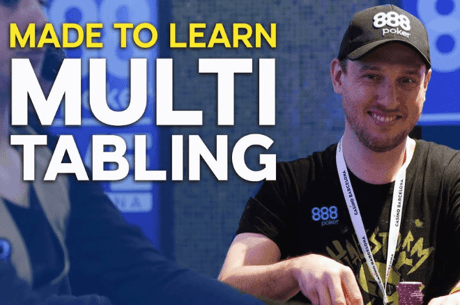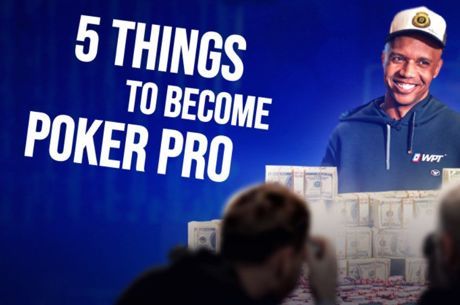Bankroll Builders, Vol. 5: Micro-Stakes No-Limit Hold'em, Part 2

In part one of this article we discussed bankroll management and earning potential at microstakes no-limit hold'em. Today, we're sharing some of our time-tested tips from the trenches to get you well on your way to rolling that $50 up to $500. Sit down, listen up, and get ready to go fishing.
Tips from the Trenches:
- Stick with the full-ring tables. Especially if you are new to poker, start out by playing in the full-ring games. Six-max no-limit hold’em is a very different beast and while you’re getting your bearings, it’s best to stick with nine- or ten-handed play. When you’re searching the lobby for an open table, keep an eye on the percentage of players who see a flop (“Plr/Flp”). At these stakes, that number can be as high as 40 or 50 percent. The larger the percentage, the looser (and likely more profitable) the game.
- Play a straightforward, solid game. A microstakes online no-limit hold'em table is not the place to try out fancy plays or three-barrel bluffs. The easiest way to make money in these games is by playing some good old-fashioned ABC poker. It may not be the most exciting way to play, but your mission here is to build a bankroll, not flush it away. Remember — the only way a bluff will work is if your opponent is willing to fold, and at these stakes, players with that sort of skill level are few and far between.
- Open up your range to include a wider variety of starting hands. Just because you're going to be playing a more straightforward style at the microlimits doesn't mean you have to be a total nit. On the contrary, you should loosen your starting hand requirements just a bit, especially if you're at a loose-passive table where four or five players are seeing each flop. The goal here is to play hands that have the potential to hit the flop hard and earn you a big payoff from someone who can't let go of one pair. Keep premium hands like big pairs, big aces, and suited Broadway cards in the mix, but try to see some cheap flops with baby pairs, smaller suited connectors (4-5s, 5-6s, 7-8s) and suited aces. Even one-gap hands like J-9s, T-8s, and 7-9s can be valuable when played cheaply from position.
- Value-bet your monsters and get paid. Let's say you limped in from the cutoff with A♠4♠ behind two loose-passive players and both blinds came along as well. The flop comes down K♠5♦2♠. The blinds check to the first limper, who bets 2/3 pot, and the second limper calls. You should seriously consider putting in a smallish raise to sweeten the pot. Why? Let's think about what your opponents could have. Both players limped in. Small and medium pairs are still well within their range, but larger pairs and hands like A-K, A-Q, A-J and even K-Q would have likely raised. One of them could have a king. Heck, both of them could have a king. More likely, one has a small pair like 6-6 or 7-7 or even something random like Qs-5s or 5-6. Your hand is loaded with outs against either of these hands — any spade makes the nut flush, an ace gives you top pair and a three makes you a wheel. If any of those 16 cards hits the turn or river, you now have a big pot to value-bet and probably at least one opponent who will pay you off. Be patient, wait for those big hands or monster draws, and take those fish to "valuetown."
- Beware of the turn raise on dangerous boards. If your opponent has been largely loose and passive, then suddenly turns around and puts in a huge raise on fourth or fifth street, be very cautious about continuing with your hand. These are not exactly the type of players who are going to be bluff-raising too often, if at all. Let's say the board reads K♣Q♥6♣9♦ on the turn and you're holding K♠Q♦. Your opponent limp-called your raise from position before the flop, then check-called your bet on the flop. On the turn, he checks again, you bet, and he puts in a substantial raise. Although you may feel your K-Q could be good here, J-T or even 9-9 are distinct possibilities. Look for a reason to fold in this spot, not a reason to call. It could cost your entire stack.
Are you ready to start building your own bankroll? Open up an account at one of our online poker rooms and start grinding. For even more up-to-the minute news, follow us on Twitter.








